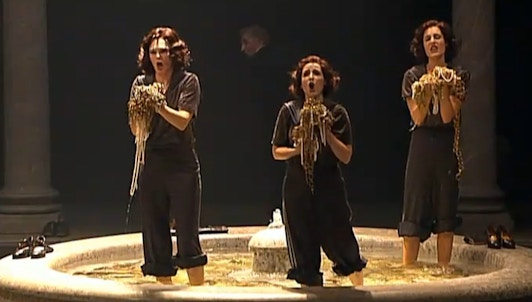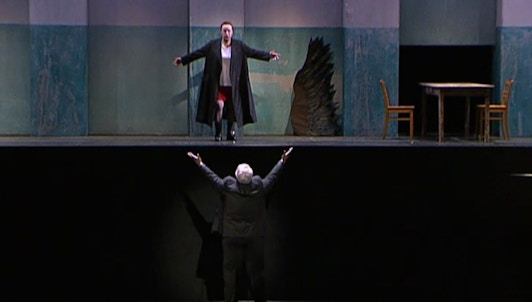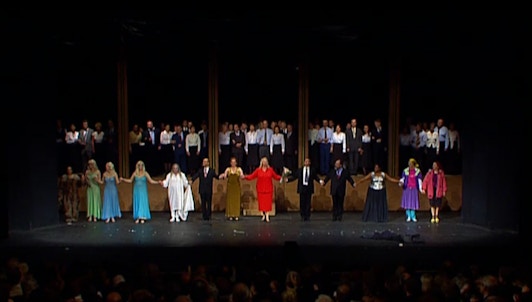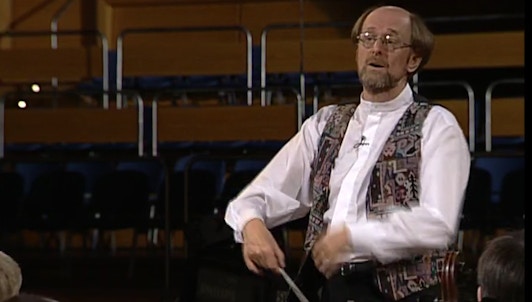The third part of the Tetralogy, "Siegfried," performed at the Stuttgart Opera and conducted by Lothar Zagrozek, is as far removed as possible from a reinterpretation Wagnerian mythology.
"Four operas, four directors." It was as a response to this original artistic idea that Wagner's Tetralogy was produced in 1999-2000 on the stage of the Stuttgart Opera under the direction of the Austrian conductor Lothar Zagrosek and was later filmed in 2002-2003. The Rhinegold (the Prologue) was entrusted to Joachim Schlömer, The Valkyrie to Christof Nel, Siegfried to Jossi Wieler and Sergio Morabito, and lastly the last day of the Ring, the Twilight of the Gods to Perter Konwitschny.
After the choreographer-dancer Joachim Schlömer (The Rhinegold), it was a man from Stuttgart, Christof Nel, who directed The Valkyrie. These two are also the most irreverent scenographers working in Germany. The combination of a zany atmosphere with that of a downbeat housing estate complete with a dismal Formica kitchen, a floor strewn with utensils and grotesque characters are the stamp of their universe which they aren't afraid of projecting within "Siegfried" as well. The effect is quite striking.
The Tetralogy performed in Stuttgart created a sensation, however, Siegfried is certainly the most original of the four parts: in it there remains nothing of the epic Wagnerian grandeur. Everything is focused on the realism of the action and the cynicism and violence of the characters that come closer to evoking the atmosphere of Stanley Kubrick's Clockwork Orange than the Romanticism of Bayreuth. At any rate the journey is well worth the detour. On stage, the performance of the singers matches the ambition of the project and the lyricism of Lothar Zagrosek is enthusing.




